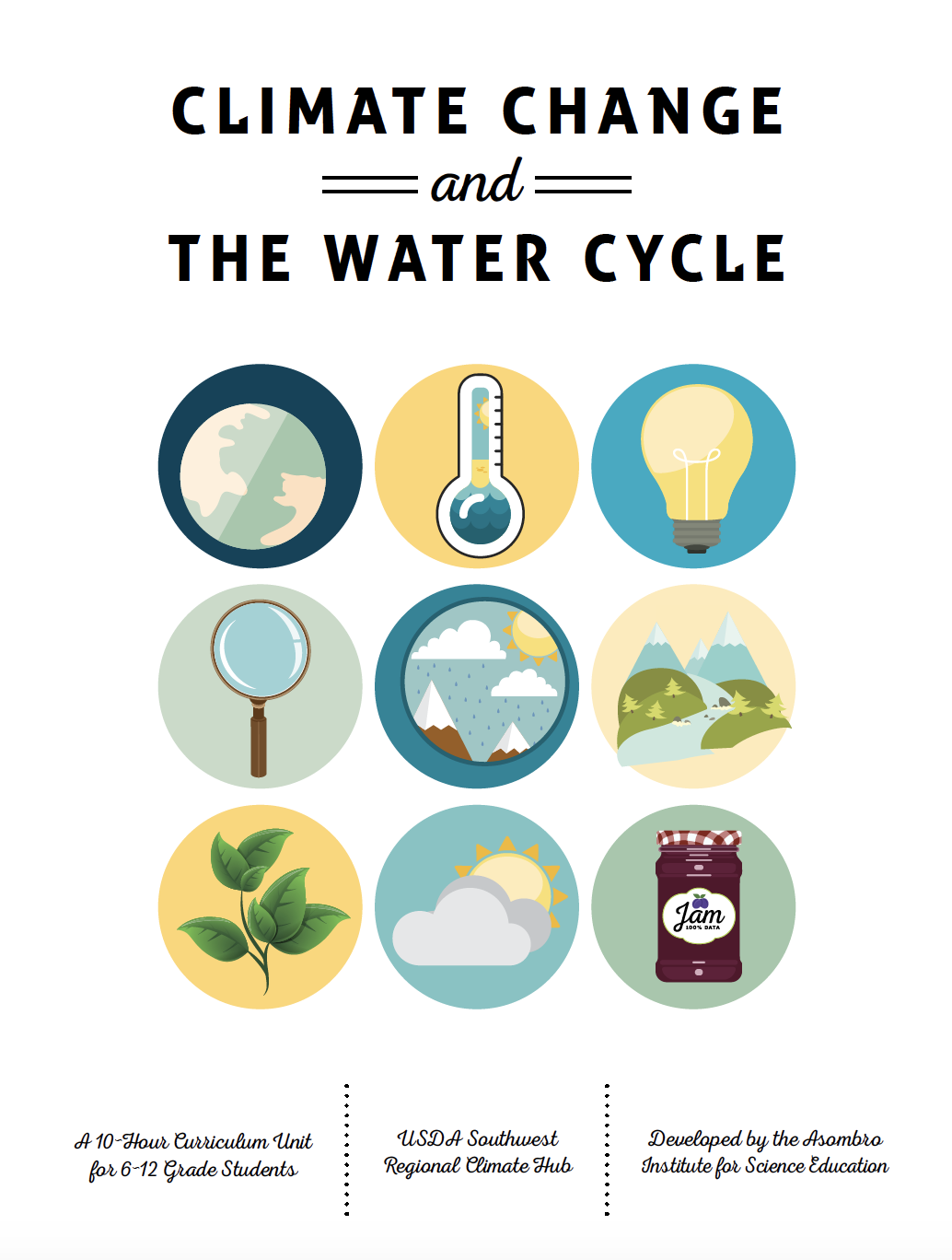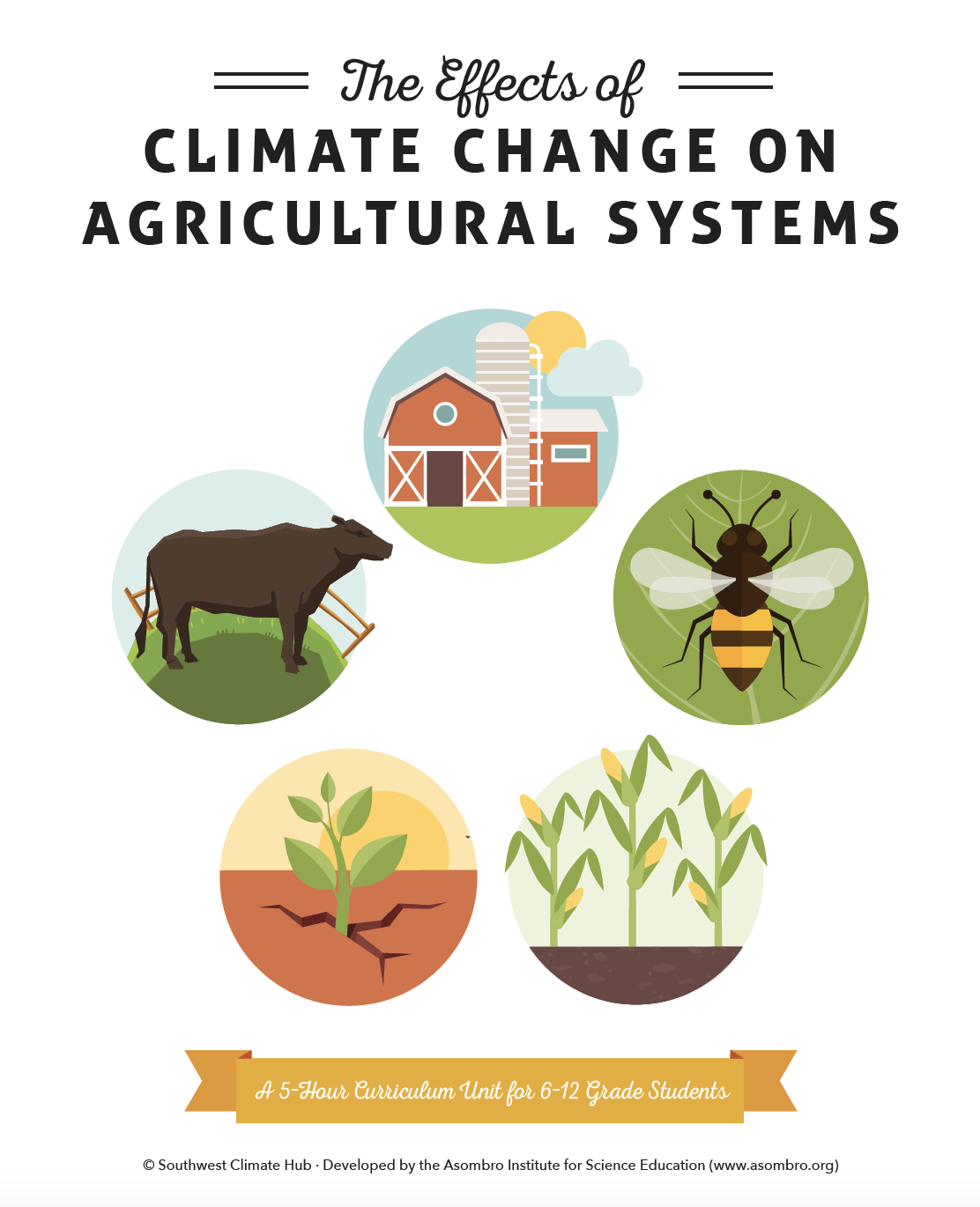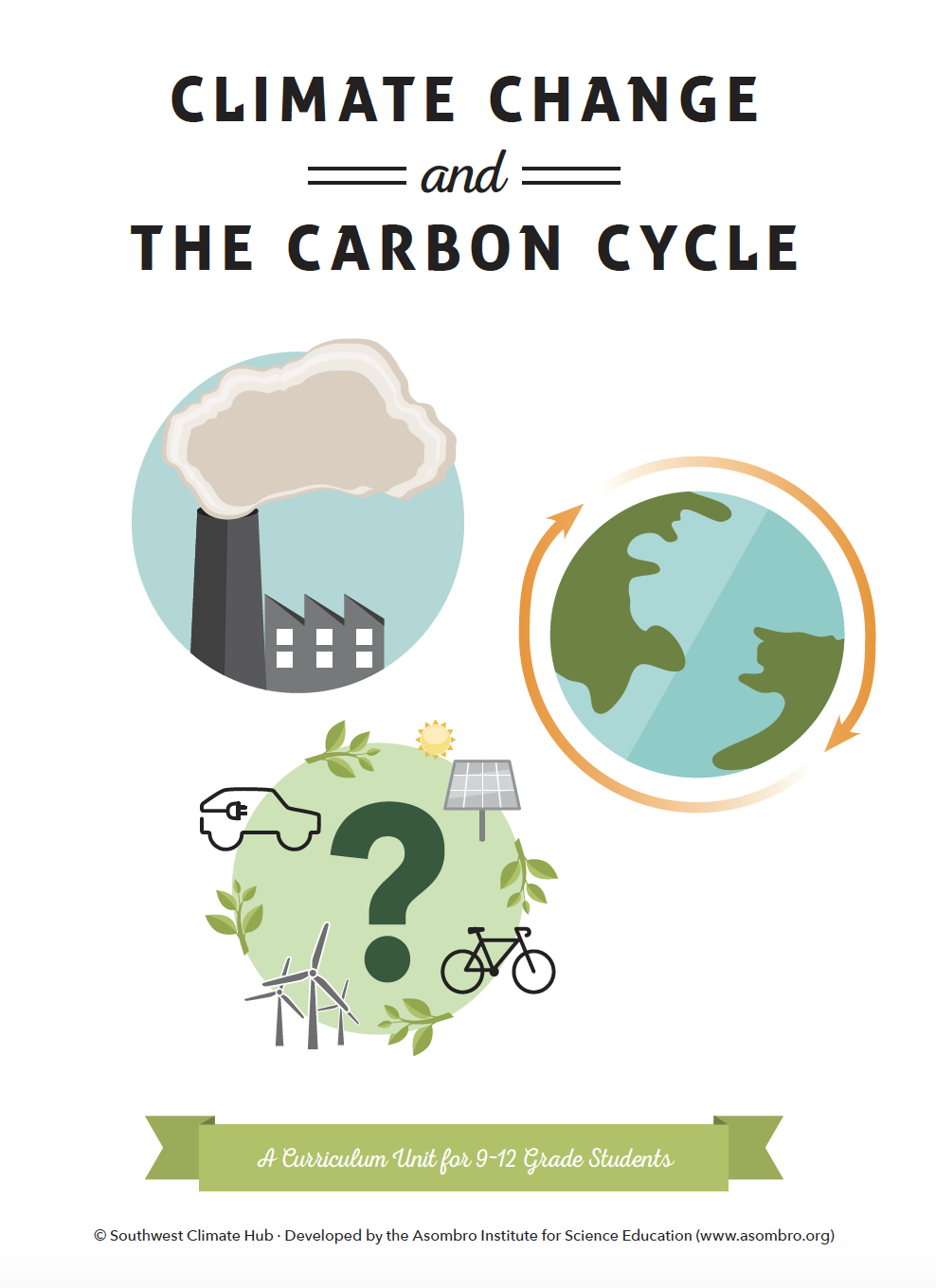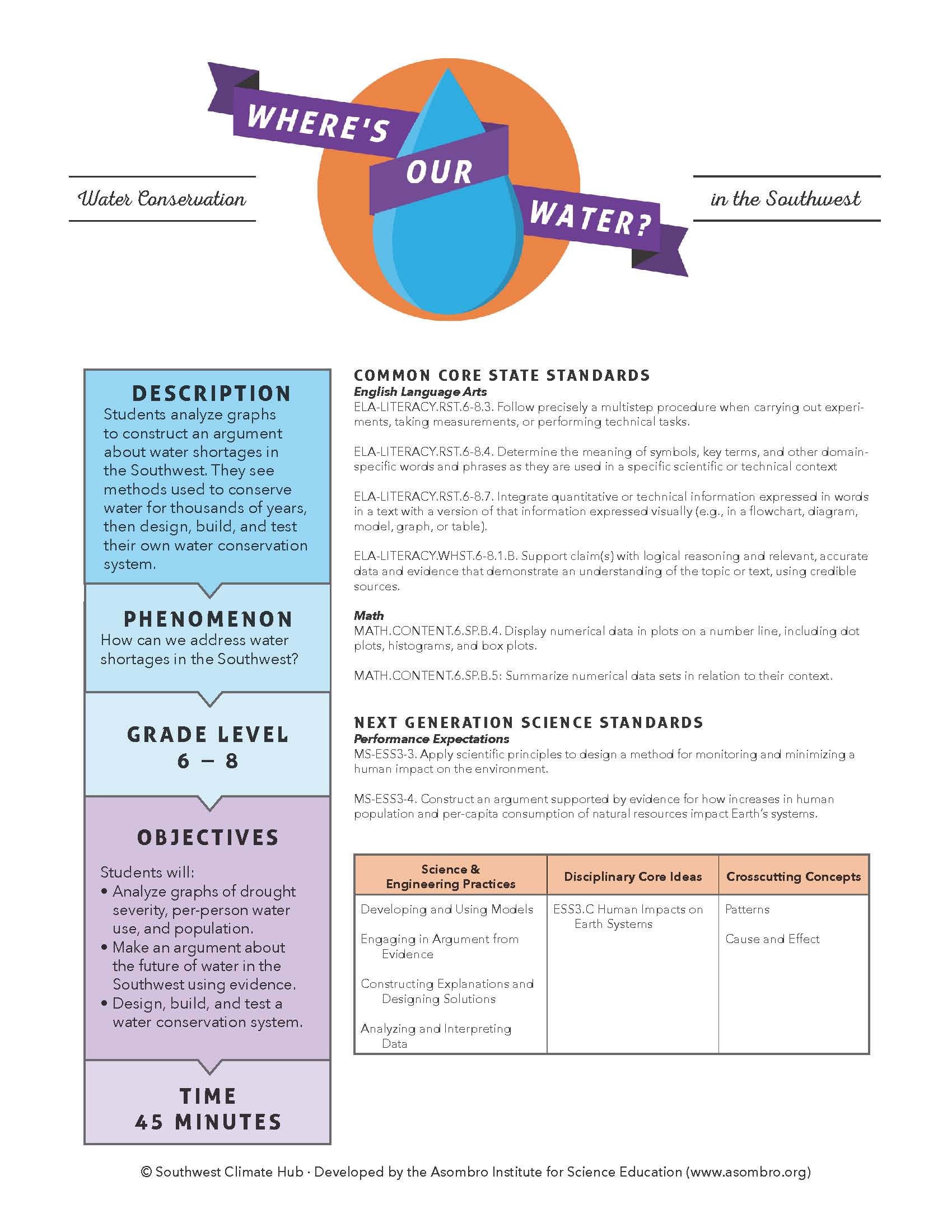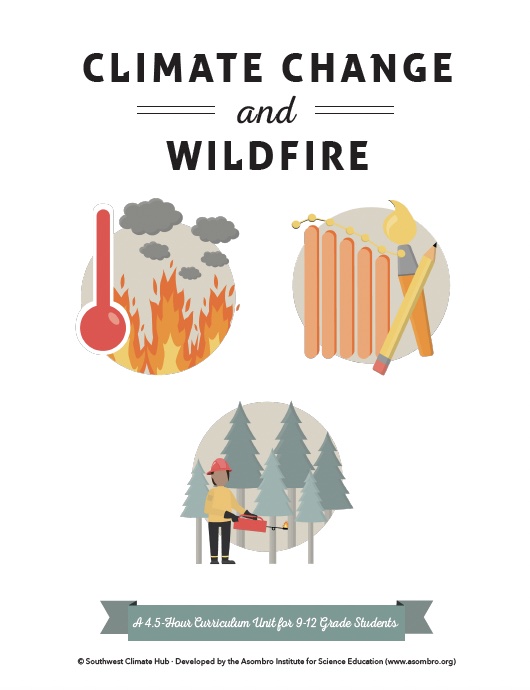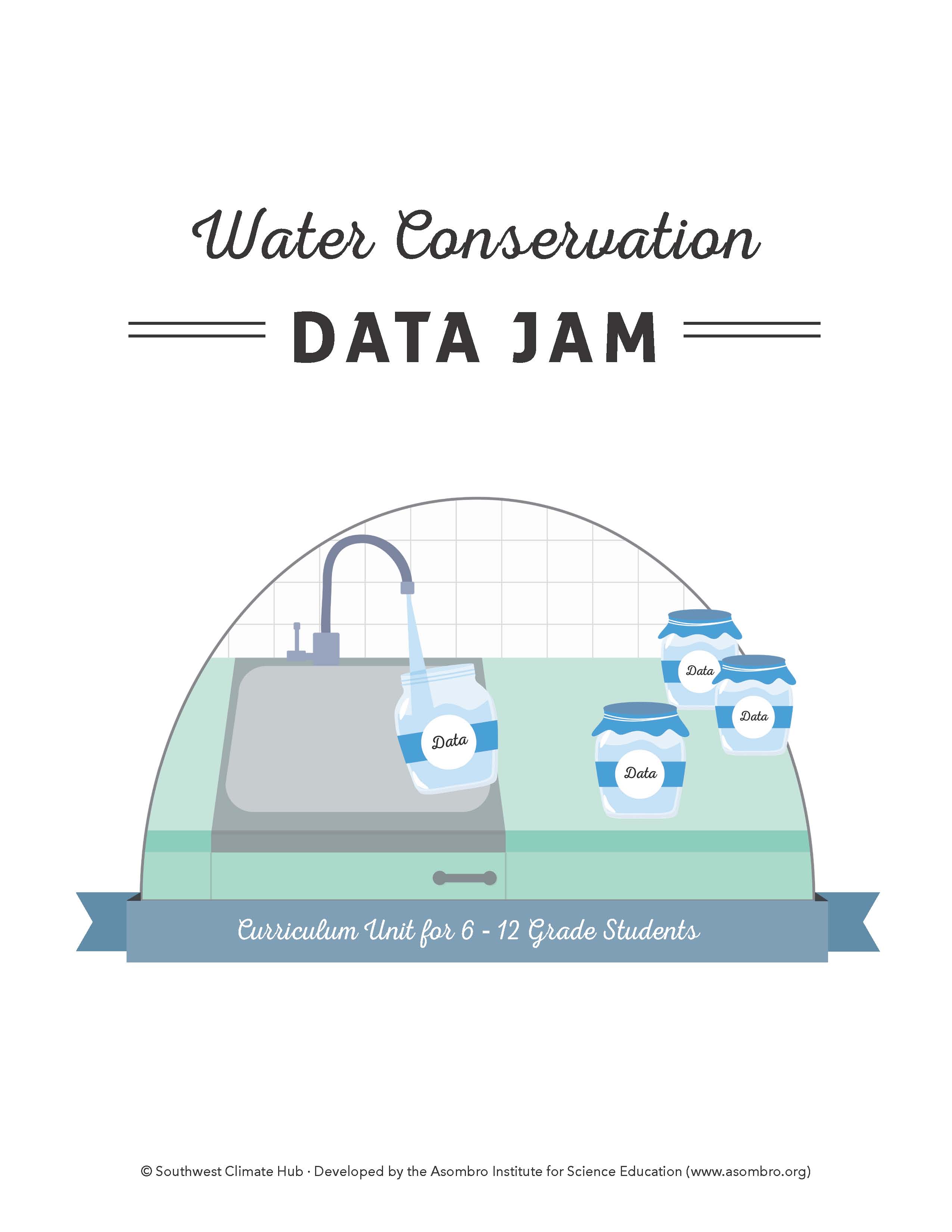Investing in K-12 climate change education can provide valuable returns in the form of both long-term and short-term mitigation. In addition to the influence that education can have on students’ actions as future stakeholders, research shows that children can be effective agents of change within their families with regard to environmental behaviors (Evans et al., 1996; Anderson, 2016). With this in mind, the Southwest Climate Hub partnered with the nonprofit Asombro Institute for Science Education to create engaging and scientifically rigorous secondary education units on climate change and the water cycle, agricultural systems, and the carbon cycle. Three units are available for educators:
Unit 1: Climate Change and the Water Cycle
This unit consists of nine 6-12th grade activities focused on climate change effects on the water cycle and water resources in the southwest. Lessons include experiments, board games, and kinesthetic games, which can be conducted together or individually.
Unit 2: The Effects of Climate Change on Agricultural Systems
This unit educates students on the effects of climate change on crop productivity and food security. Lessons include a game of strategy, a gallery walk, two experiments, and a kinesthetic game to explore how climate change is affecting food production. Educators can choose to conduct the five activities in sequence or use them individually.
Unit 3: Climate Change and the Carbon Cycle
The Carbon Cycle unit introduces 9-12th grade students to climate change, the carbon cycle, and the effects of increasing atmospheric carbon dioxide on Earth’s systems. The three activities in the unit include a model and experiment, a beanbag tossing game, a board game, and an investigation of mitigation strategies.
Unit 4: Where's Our Water? Water Conservation in the Southwest
The Where’s Our Water lesson was designed to be conducted in 45 minutes and consists of three activities. Students analyze graphs to construct an argument about the future of water shortages, watch a video to learn about traditional water conservation methods that are still used today, then design and build a water conservation system. The educator guide includes suggestions for modified activities that students can complete at home.
Unit 5: Climate Change and Wildfire
This unit was designed to introduce high school students to the effects of climate change and rising global temperatures on wildfires. This unit is freely available and intended for use by anyone, especially educators of 9-12 grade students. The unit consists of three activities and was designed to be conducted over five hours. Each activity can also stand alone however, and the unit need not be completed in its entirety.
Unit 6: Water Conservation Data Jam
This unit was designed to introduce 6-12 grade students to the effects of climate change on water resources and inspire them to take action based on data. We partnered with the Asombro Institute for Science Education to design an engaging, fun, and scientifically rigorous education unit aligned with Common Core State Standards and Next Generation Science Standards. This unit is freely available and intended for use by anyone, especially educators of 6-12 grade students. The unit consists of several activities designed to be conducted over five or more days. However, there are many stopping points and the unit need not be completed in its entirety.
All of the engaging activities in these units are appropriate for both formal and informal educators and can be conducted with non-specialized materials that many educators already have or are readily available at most household goods stores. The activities are aligned with Next Generation Science Standards and Common Core State Standards. The full units are also freely available here.
References
Evans , S. M., Gill, M. E., & Marchant, J. (1996). Schoolchildren as educators: the indirect influence of environmental education in schools on parents' attitudes towards the environment. Journal of Biological Education 30 (4): 243-248.
Andersen, P. J. (2016). Children as intergenerational environmental change agents: Using a negotiated protocol to foster environmentally responsible behaviour in the family home. [Doctor of Education thesis, University of Wollongong]. https://ro.uow.edu.au/theses/4945


